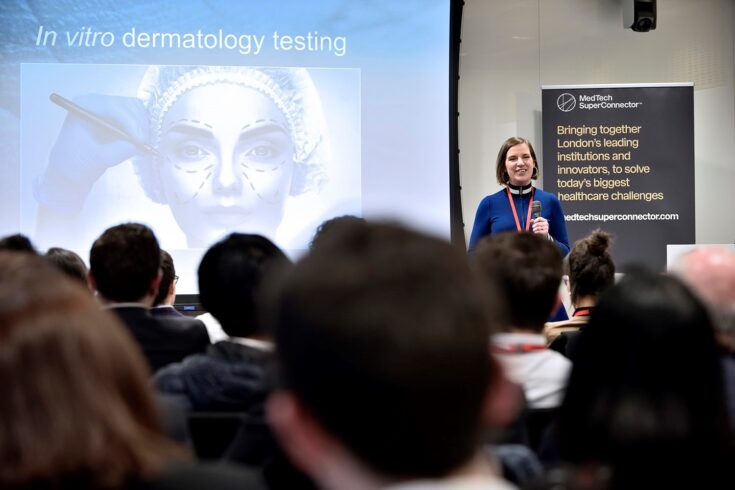Supported by Research England’s Connecting Capability Fund, MedTech SuperConnector (MTSC) brings together the collective know-how of eight London-based academic institutions. It aims to find better ways of translating new discoveries into clinical practice and marketable products.
MTSC is unique in focusing on early career researchers, nurturing talent and training them in entrepreneurship. It makes use of the innovative thinking of researchers who are relatively new to the field, in an attempt to find solutions to today’s healthcare challenges.
About the project
To help bring the ideas of early-career researchers to market, MTSC gives them access to world-class facilities and expertise, and the chance to make contacts with industry partners and potential investors.
Hiten Thakrar, MTSC’s programme manager based at Imperial College London, explains:
With the SuperConnector, we’re bringing together early-career researchers, bioscience incubators and industry, plus NHS patients, to work out the most effective methods of translating novel medtech discoveries into products that can be commercialised and developed for greater impact.
Three-dimensional printing, hacking, wearable technologies that can track and improve health – these can be used in a variety of ways for medtech innovation.
Impacts of the project
Art and medical technology finding new ideas
Projects supported by MTSC show how arts and medical research can combine in interesting ways. For example:
- the Royal College of Music’s (RCM’s) technology platform for training musicians has been adapted to train medics
- a trumpet has been adapted for lung therapy to help people who suffer from cystic fibrosis and asthma.
MTSC helped connect the RCM’s assistant head of junior programmes and lead researcher on the lung therapy trumpet project, Ben Storey, with the Advanced Hackspace at Imperial College London. Together they developed the technology and built a prototype. As a result, RCM has now commercialised its first piece of technology as RCM intellectual property.
To date, four separate cohorts with a total of 55 early-career researchers are being helped through the MTSC, including some that are focused on particular challenges.
One of the cohorts is looking at mental health. Projects include developing an algorithm for digitally detecting indicators of depression in people’s voices. In this project the Royal College of Psychiatrists has partnered with UK company Affect AI, using the Royal College of Art’s expertise in voice recognition.
Faster commercialisation
Dr Sam Wilson is another researcher who has benefited from MTSC support. He is chief technology innovation officer at SERG Technologies, a business focused on reinventing human to machine interfaces. “Traditionally it can take years to allow a company to spin-out,” he says. “My team and I managed it in just months.”
Within 10 months of Sam joining SERG Technologies, it managed to raise £558,000 in seed investment and grant funding and filed its first patent.
MTSC is now in its final year. So far the first two cohorts have:
- raised over £2.42 million in venture capital and further grant funding
- filed seven patents
- formed five spin-out companies that are all raising seed funding and taking on staff.
Top image: A business venture presentation at the MedTech SuperConnector cohort showcase. Credit: MedTech SuperConnector.

